#Trucking
Shocker! Trucker Union Opposes Exemptions for Autonomous Vehicles
The Transport Workers Union of America has issued its formal opposition to requests, filed by Alphabet's self-driving unit Waymo and autonomous technology company Aurora, seeking an exemption from some of the rules pertaining to the warning devices equipped to semi-trucks.
Truckers Suggest Electronic Data Logging Hasn’t Made for Safer Roads
The Owner-Operator Independent Drivers Association (OOIDA) is claiming that the electronic logging device (ELD) mandates instituted by Congress in 2018 have failed to improve roadway safety in the United States – noting that fatalities involving large trucks have actually increased since its implementation. The group representing the truckers is asserting that the tracking devices provide no tangible safety advantages for drivers and is hoping to use the relevant data to oppose proposals seeking to expand the use of ELDs.
What Ever Happened to the U.S. People's Convoy?
It’s been a while since we’ve covered the trucking protests and you might be wondering what happened with the U.S. People’s Convoy that emerged from the still-smoldering ashes of the Canadian Freedom Convoy. Well, it’s been circling Washington, D.C. for the last several weeks in the hope it can draw sufficient attention.
Unlike the Canadian-based convoy, which saw the government deploy armed men to clear demonstrations taking place in front of Ottawa’s Parliament Hill, the Americans have remained mobile to avoid getting cornered by authorities. Stationed out of Hagerstown Speedway in Maryland, truckers have established a base of operations where they can service vehicles whenever they’re not on the Beltway protesting. Drone shots from above have indicated that there are usually a few hundred trucks parked at the racetrack each morning, though videos from inside show evening returns including hundreds more supportive passenger vehicles. While journeys into the city do take place, they typically involve a handful of trucks designed to make some noise before quickly retreating to avoid being penned in.
People's Convoy Rolls On Washington, Freedom Convoy Regrouping
On Wednesday, American truckers commenced a cross-country drive from California to Washington, D.C., to petition governments (local, state, and especially federal) to end all COVID-19 mandates. Known as The People’s Convoy, the group was inspired by the Canadian Freedom Convoy that was broken up over the weekend and effectively serves to spread its message within the United States.
The goal is to arrive in the capital early in March to pressure the Biden Administration into ending any formal federal emergencies pertaining to the pandemic. Defense Secretary Lloyd Austin has approved a request from the District of Columbia government and the U.S. Capitol police for 700 National Guard troops, widespread fencing, and 50 armored vehicles in anticipation.
Industry Begins Blaming the Bridge, Truckers in Ottawa
With the Ambassador Bridge having been cleared by police over the weekend, those protesting government mandates have literally been relegated to the sidelines. Canadian officers from a variety of departments, including Ontario Provincial Police, are now situated at relevant intersections and Windsor, Ontario, has declared a state of emergency in case demonstrators return.
But don’t think the story is over. The trucker blockade certainly caused trouble for the automotive sector and it suddenly seems interested in rolling the event into the industry’s ever-expanding list of excuses. Now that the rigs have all been removed, spokespeople have been chiming in and they’re being presented as rather single-minded on the matter. They want more assistance from the government to quash any protests that might impact their bottom line and are happy to have something else to blame for why the broader industry remains in such a pitiful state.
Freedom Convoy Update: Truckers Are Winning
The Freedom Convoy that originated in Canada last month has gained an incredible amount of momentum, garnering loads of support from citizens around the world. Sympathetic protests seem to be erupting everywhere while the original group of truckers remains planted on the streets of Ottawa to demand an end to government mandates. But honking at Parliament Hill for two weeks was only a portion of the convoy’s grand strategy.
Large groups of truckers have broken off to create blockades at meaningful border crossings, gaining control of North America’s already ailing supply lines. The most recent example resulted in the taking of the Ambassador Bridge in Detroit, an essential trade crossing for both the United States and Canada. Truckers have held the bridge for five days and automakers have begun announcing shutdowns due to supply issues. Meanwhile, the Canadian government has begun discussing an end to lockdown measures after failing to stop the protests and other nations appear poised to follow in its footsteps.
Canadian Trucker Protests Continue, Aussies Launch 'Convoy to Canberra'
With supply lines being of particular importance these days, truckers are leveraging their role to encourage government to see things their way. Canada’s Freedom Convoy reached Ottawa on Friday to demand officials end pandemic-related restrictions it believes are wreaking havoc on the economy and the protests have yet to stop.
While this all started with U.S. and Canadian truckers urging the government to abandon border restrictions that forced all drivers to be vaccinated and confirmed as COVID free (starting January 15th) or be forced to quarantine for 14 days, activists are now asking Ottawa to abandon all mandates or prepare itself for worsening disruptions to already ailing supply chains. They’ve since been joined by Australian truckers, who have formed the ‘Convoy to Canberra’ for similar reasons. Future demonstrations are also being prepared for the United States.
Stellantis Makes Decision on Vaccine, Truckers Head to Ottawa
Following the U.S. Supreme Court’s decision to block proposed OSHA regulations backed by the Biden administration, it was assumed that automakers would quickly begin weighing in on vaccine rules now that there would be no federal obligation. However, they’ve actually been keeping quiet on the matter, with Stellantis being the first manufacturer to walk back previous requirements.
While the automaker had previously been working up to companywide vaccine mandates, it pushed back its vaccine deadline for early January. This week, Stellantis confirmed that it will be abandoning the scheme entirely after suggesting that the existing compliance rates were sufficient. Though something tells me that executives have become aware of the swelling pushback against COVID restrictions and became concerned with the optics.
Largest Labor Group Says Autonomous Trucks Need Drivers
The Transportation Trades Department for the American Federation of Labor and Congress of Industrial Organizations (AFL-CIO) is spending its Tuesday telling the U.S. House of Representatives Energy and Commerce subcommittee that autonomous vehicles. Though it’s not because they occasionally run amok when left to their own devices. This is a matter of jobs.
Labor leaders have become increasingly concerned by the massive layoffs that will likely accompany the proliferation of electric vehicles, which require fewer components to assemble. But AVs have played second fiddle until fairly recently, with truckers doing most of the heavy lifting themselves. Now, the ALF-CIO is getting in on the action and hoping to convince legislators to establish formal requirements for there to be a driver behind in the wheel of all commercial vehicles over 10,000 pounds.
Uber Killing Off Autonomous Trucking Division
Uber is shutting down its self-driving trucks unit due to a lack of progress and the controversy surrounding its multi-million dollar acquisition of Otto in 2016. The firm was purchased with the intent of developing self-driving cargo haulers, potentially saving the trucking company a fortune by outsourcing driving jobs to robots. But it was slow to reach that goal and ran head-on with a serious distraction almost immediately.
Initially, things looked promising. Otto was famous for engineering a truck that hauled a trailer full of beer across 120 miles of Colorado highway without human intervention. But it found a different sort of fame after its founder, Anthony Levandowski, took over as head of Uber’s self-driving car research and Waymo faulted him with handing over trade secrets.
As a former engineer for Google’s autonomous vehicle project (which would later evolve into Waymo), Levandowski was privy to sensitive information he was later accused of selling as part of the Otto buyout.
Here's What Brown Can Do for Tesla Motors
The United Parcel Service said Tuesday it will purchase 125 all-electric semi trucks from Tesla, surpassing PepsiCo’s order to make it the largest known order for the vehicle thus far. While the purchase isn’t tantamount to UPS making a complete shift to an electric fleet, the company has previously stated it wants to convert up to 1,500 delivery trucks in New York to battery electric units and has been researching non-traditional powertrains for some time.
With so many of its trips taking place between distribution hubs, a medium-range EV truck boasting a high capacity could be a good fit for UPS. At the very least, Tesla seems to think so — the delivery service provided the automaker with extensive data on how its trucks function on real-world routes in order to evaluate how the hulking BEVs might perform in its fleet. Of course, the cooperative experience also helps both companies promote themselves as leaders in the green revolution.
Anheuser-Busch Reserves 40 Electric Semi Trucks From Tesla Motors
When you’re selling the self-professed “King of Beers,” you’re going to want to transport them in a style befitting of royalty. Either that, or you’re interested in keeping your shipping costs to a minimum and have the capital necessary to invest in new technologies like an electric semi.
Anheuser-Busch, maker of Budweiser and over a dozen other beer brands, has decided to purchase 40 of Tesla’s battery-electric trucks. The company said it made the move in hopes of reducing fuel costs and cutting vehicle emissions. We’d also gamble that the adult beverage purveyor is interested in the vehicle’s claimed autonomous driving capabilities.
Uber Gains a Rival in the World of Self-driving Trucks
Waymo has announced it has begun working on self-driving trucks, possibly to further annoy its chief industry rival, Uber Technologies. On Thursday, the Alphabet-owned development team said it was venturing into autonomous trucking, only two weeks after UberFreight’s official launch.
While the ride-hailing giant has been working on self-driving trucks since its acquisition of Otto last year, the timing of the two more recent announcements are suspiciously close.
No Investigation After Senators Demand Probe Into Massive Takata Truck Blast
The company behind the massive recall of potentially explosive airbags won’t face a federal investigation after one of its trucks crashed and exploded on a Texas highway.
A transport truck carrying ammonium nitrate propellant and airbag inflators detonated last week, killing the occupant of a nearby home and leaving the truck in pieces. After two U.S. senators demanded a probe, the National Transportation Safety Board now claims that Takata followed the rules.
Federal Government Pushes for Speed Limiters on Trucks and Buses
The U.S. Department of Transportation wants to mandate speed-limiting devices on all tractor-trailers and buses in the country in a bid to save lives and fuel.
Announced yesterday by the National Highway Traffic Safety Administration, the proposal would limit vehicles with a gross vehicle weight rating of 26,000 pounds or more to 60, 65, or 68 miles per hour. Other speed limits could be considered, but that’s up to the public to debate.



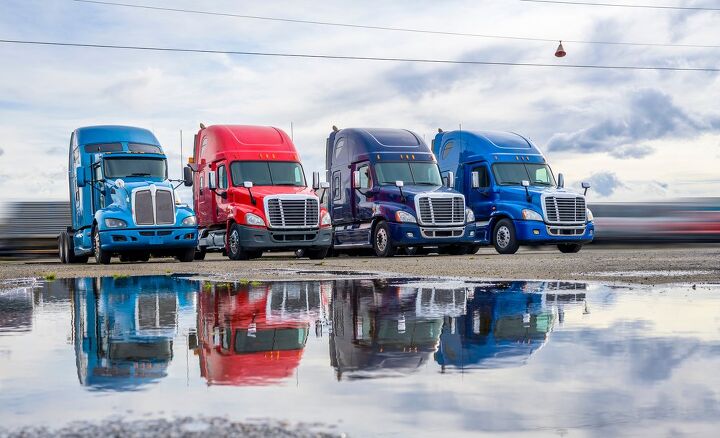


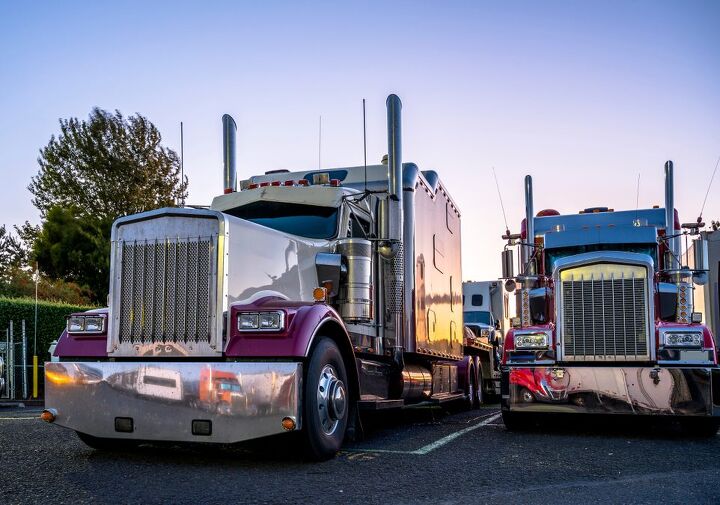
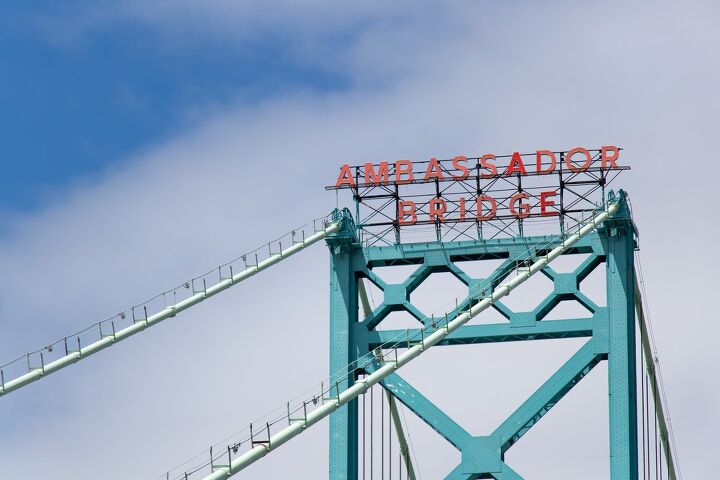
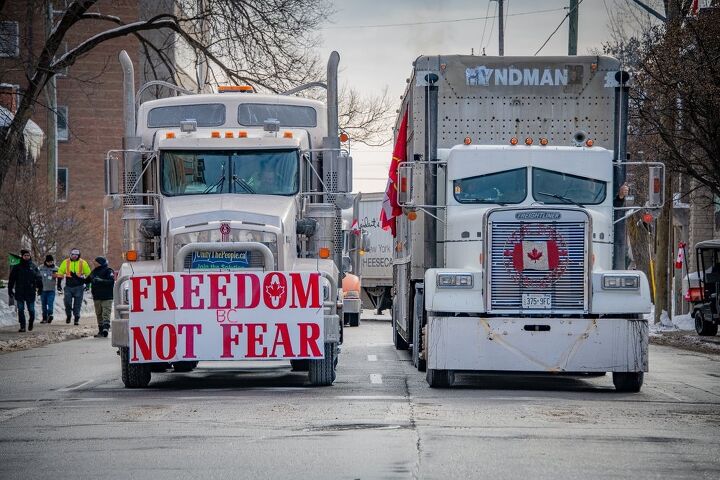


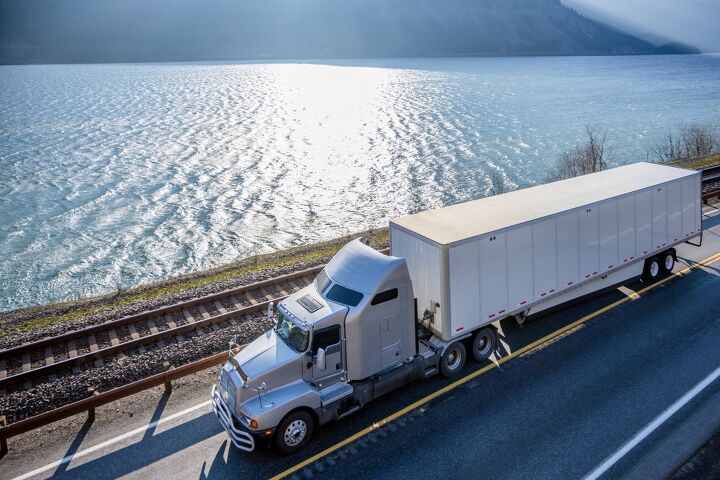





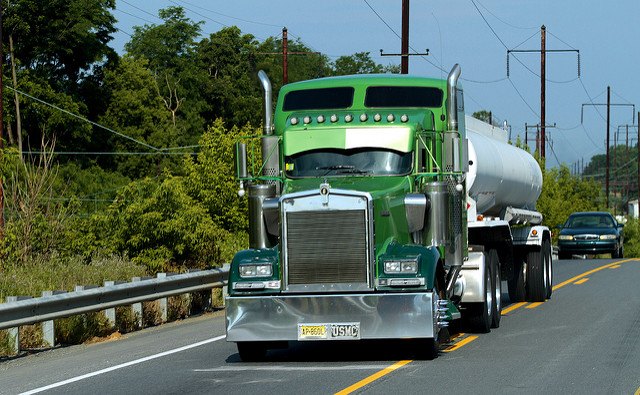












Recent Comments